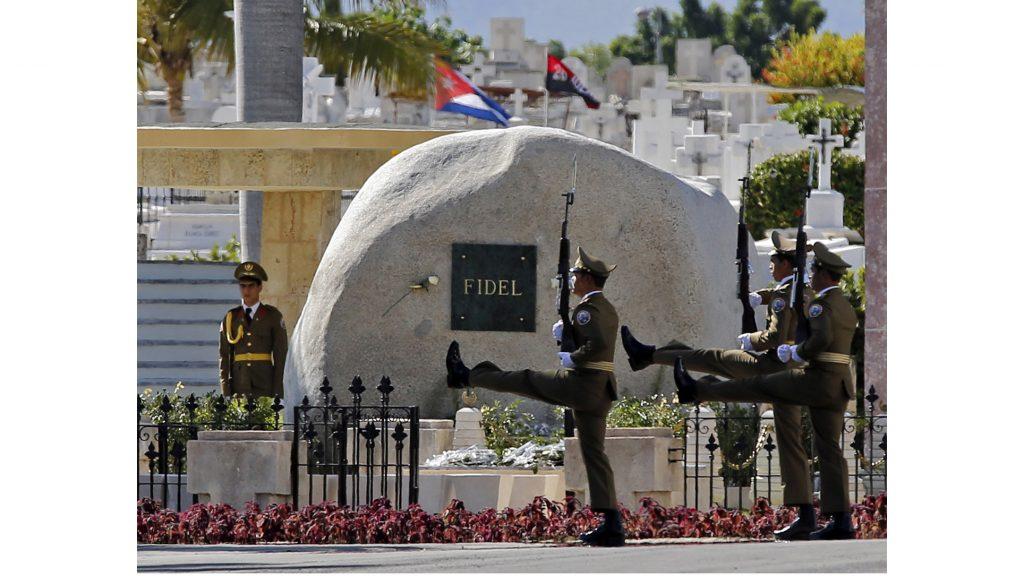As pictures of Che Guevara and Fidel Castro become normalized enough to plaster photos to a window of Macbride Hall, it is evident that society is idolizing dictators as means of promoting a political philosophy.
By Marina Jaimes
Today, many harmless college students risk being unjustifiably called “Hitler” for expressing any view that deviates from the left end of the political spectrum. The same accusers are ones that promote Cuban socialism while ignoring the hundreds killed, jailed, or fleeing from the rule of evil dictators.
Photos of Che Guevara and Fidel Castro smiling are welcomed on campus, whereas protests of the current U.S. president are proudly organized and tolerated. Many supporters of the revolutionaries cite their persistent attempt to eliminate illiteracy and inequalities in the world, no matter at what price.
The life of Che Guevara, a strong opponent of capitalism, is commemorated through selling goods with the militant’s face on T-shirts, mugs, and posters. It’s ironic when those praising Guevara are also strong opponents of the Second Amendment, as Guevara used firing squads to impose a cruel regime over the people of Cuba. His life, therefore, will be remembered in hypocrisy, to say the least.
According to Amnesty International, “Fidel Castro’s achievements in improving access to public services for millions of Cubans were tempered by a systemic repression of basic freedoms during his time in power.” On the day of his death, sounds of fireworks and tears of joy filled the streets of Miami, where exiles and their family members rejoiced. Their freedoms meant more to them than security, having fled the 1959 Revolution for life in America.
Human Rights Watch cites key issues facing Cuba because Castro’s regime: arbitrary detention, short-term imprisonment, freedom of expression, political prisoners, travel restrictions, prison conditions, labor rights. There comes to price to pay when asking the government to provide health care and education. Evidently, the price is quite worth it to those who live comfortably outside of Cuba and celebrate the lives of two dangerous men.
Another admirer of Marxist governments was Hugo Chavez, the former president of Venezuela. Chavez sought to nationalize Venezuela’s rich oil industry to implement a multitude of social programs. He, just like many privileged Americans, idolized Castro and his revolutionary tactics. If alive today, he, too, would praise leaders such as Guevara, joining the many college students that ignorantly display their admiration him on posters and through smiling photographs.
Venezuela is currently in a humanitarian crisis after its socialist leaders translated their love for Castro-esque politics into reality for their citizens. The country faces a shortage of food and medicine in addition to a power-hungry government. Their current president, Nicolas Maduro, happily dances as riots erupt on the streets of Venezuela. Turning a blind eye to the consequences of worshiping ruthless Marxists, Americans who display their love for these leaders do not see how their adoration of regimes are capable of influencing the Chavezs and Maduros of tomorrow.
If the road to hell is paved with good intentions, we should look down upon Guevara, Castro, and Chavez for the crises they have brought upon humanity in the name of progressivism. There comes a danger in idolizing leaders who caused so much misery. Their memories are not to be glorified or welcomed but to be warned about if peace and tolerance is going to be promoted in the world.



